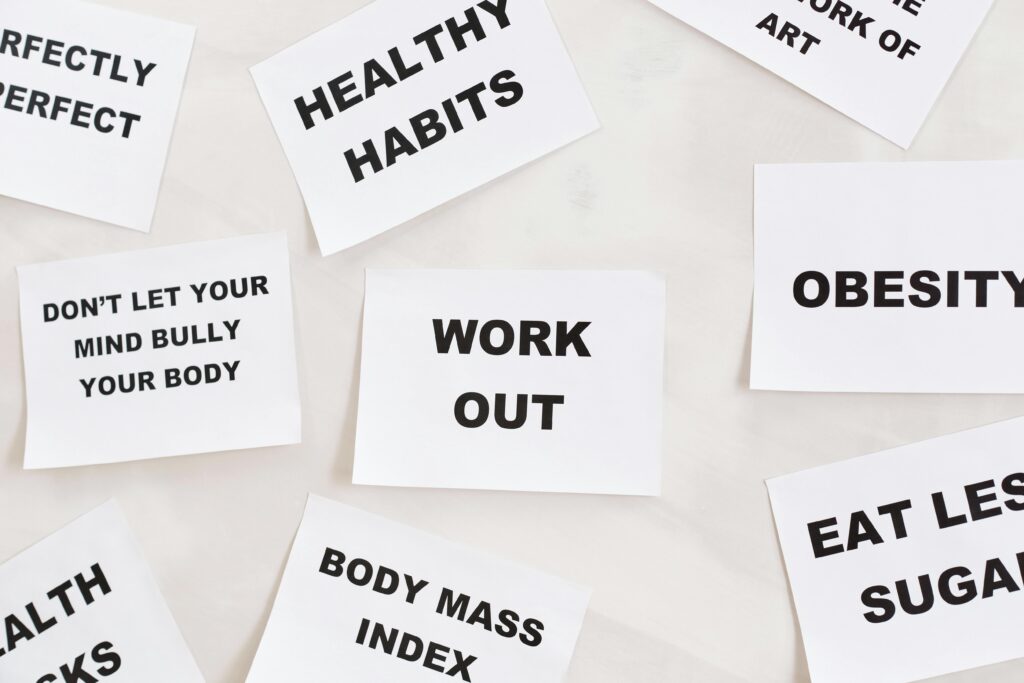Millions of people set ambitious New Year’s resolutions each January, many focusing on improving health, fitness, and nutrition. However, studies show that most resolutions fail within weeks. This isn’t a reflection of individual willpower but rather the unrealistic nature of traditional goal setting.
For 2026, let’s embrace a sustainable approach to health goals rooted in flexibility, mindfulness, and positive change.
The Pitfalls of Traditional New Year’s Resolutions
Traditional resolutions often come with a list of strict rules and lofty expectations. This “all-or-nothing” mindset can be demotivating, especially when progress is slow, or setbacks occur. Psychologically, rigid goals can foster feelings of guilt, frustration, and inadequacy, ultimately leading many to abandon them altogether.
For example, diet-focused resolutions such as cutting out entire food groups or losing significant weight in a short time frame often fail because they’re unsustainable. Overly ambitious goals not only risk physical burnout but also reinforce negative self-perceptions when they’re unmet.
Embracing a New Mindset for Health Goals
Rather than focusing on rigid and negative resolutions, adopt a mindset prioritizing flexibility and positivity. Harness the “fresh-start effect”—the motivational boost that comes with milestones like the New Year—but use it to set attainable, sustainable goals.
A key shift is moving from avoidance-oriented goals (e.g., “I won’t eat sugar”) to approach-oriented goals (e.g., “I’ll include one fruit in my breakfast”).
Approach-oriented goals, which focus on achieving positive outcomes, are shown to be more effective and fulfilling. This mindset encourages progress rather than perfection.

Setting SMART Goals for Long-term Success
SMART goals—Specific, Measurable, Achievable, Relevant, and Time-bound—are proven to create clear and actionable health objectives. For instance:
- Specific: “I’ll walk for 30 minutes after dinner three times a week.”
- Measurable: “I’ll track my daily water intake to ensure I drink eight glasses.”
- Achievable: “I’ll add a serving of vegetables to one meal daily.”
- Relevant: “I’ll focus on mindful eating to improve digestion and energy.”
- Time-bound: “I’ll complete my first 5K run by June.”
By setting realistic goals that align with your lifestyle, you’re more likely to build habits that stick and contribute to your overall well-being.
Strategies for Achieving Health Goals in 2026
When creating meaningful changes, focusing on sustainable habits rather than drastic overhauls is essential. Small, intentional steps allow you to progress without feeling overwhelmed or discouraged. Here are a few key strategies to help you succeed:
- Practice mindfulness: Paying attention to your eating habits, such as savoring each bite or recognizing hunger cues, can transform your relationship with food.
- Focus on incremental changes: Instead of attempting to overhaul your diet or exercise routine overnight, start with small, manageable adjustments. For instance, adding 10 minutes to your daily walk can make a difference over time.
- Celebrate small victories: Recognizing your progress, no matter how minor helps build confidence and keeps you motivated.
By embedding these strategies into your daily life, you can achieve your goals in a natural and rewarding way.
Flexible and Positive Goal Examples for 2026
Rather than setting rigid objectives, choose adaptable goals and emphasize positive outcomes. Here are some examples of flexible, health-focused goals to inspire you:
- Snack smarter: Swap processed snacks for fruits, vegetables, or nuts on most days of the week. These nutrient-dense choices support energy levels and overall health.
- Hydrate intentionally: Aim to replace sugary beverages with water a few times a day. Adding natural flavors like lemon or cucumber can make hydration more enjoyable.
- Practice mindful eating: Dedicate time each day to savoring meals without distractions. This simple habit can enhance your appreciation of food and help prevent overeating.
These goals are designed to fit into your lifestyle while promoting gradual, lasting improvements.
Need more assistance setting your goals to meet specific needs. Check out my guide HERE on how to use AI (E.g. Chat GPT or Gemini) to help you meet your health goals. Or book a virtual nutrition consult HERE.
The Role of Social Support in Reaching Health Goals
Achieving health goals is often easier with the support of friends, family, or a professional. Research highlights the importance of social connections in maintaining motivation and accountability. Here’s how to leverage support systems:
- Partner with a friend: Whether it’s a walking buddy or a workout partner, shared goals create a sense of camaraderie and commitment.
- Engage with a community: Online or in-person groups focused on health and wellness can provide valuable encouragement and resources.
- Seek professional guidance: A registered dietitian or fitness coach can help you set realistic goals and provide tailored advice to suit your needs.
A support network can make the journey toward your health goals less isolating and more enjoyable.
Breaking Down Goals into Manageable Steps
Big health goals can feel overwhelming, but breaking them into smaller, actionable steps makes them easier to achieve. This approach not only builds confidence but also prevents burnout. For instance:
- Instead of aiming to “run a marathon,” start with walking or jogging short distances and gradually increase over time.
- If your goal is to eat healthier, add one extra vegetable to your meals each day rather than overhauling your entire diet.
By focusing on small, consistent actions, you can maintain momentum and see steady progress toward larger goals.
Aligning Health Goals with Personal Values
When health goals align with your personal values, they become more meaningful and sustainable. Reflect on what truly matters to you—such as feeling more energetic to spend quality time with loved ones or improving mobility for hobbies you enjoy—and shape your goals accordingly.
For example, if family time is a priority, a goal like “taking a family walk after dinner three times a week” combines health with connection. This alignment makes goals more enjoyable and increases the likelihood of sticking with them.

Tools and Resources to Stay on Track
Modern tools and resources can help you stay consistent and accountable as you work toward your goals. Some popular options include:
- Health and fitness apps: Track your steps, water intake, or meals with apps like MyFitnessPal or Fitbit.
- Meal planning guides: Simplify your week by prepping healthy meals in advance using templates or cookbooks. Check out the living plate meal planners HERE.
- Habit trackers: Visualizing your progress with a habit tracker can motivate you to keep going.
These tools are designed to assist in making your health journey smoother and more efficient, helping you stay focused on your objectives
Overcoming Common Challenges
Challenges are inevitable on the path to achieving health goals, but how you handle them makes all the difference. Here are some strategies to navigate setbacks effectively:
- Embrace flexibility: Life happens, and some days won’t go as planned. Adjust your goals without guilt and remind yourself that consistency over time matters most.
- Reframe setbacks: View obstacles as learning opportunities rather than failures. Reflect on what caused the setback and how you can adapt your approach moving forward.
- Stay motivated: Keep visible reminders of your “why”—whether a photo, a journal entry, or a vision board. This can reignite your drive during tough times.
Maintaining a positive and adaptive mindset, you can overcome challenges and stay on track with your goals.
Measuring Progress Without Stress
Tracking progress is essential, but traditional metrics like weight or calories aren’t the only ways to gauge success. Consider these alternative, non-stressful measures:
- Energy levels: Are you feeling more energized throughout the day?
- Mood improvements: Do you feel happier or more balanced emotionally?
- Functional changes: Can you perform daily tasks or physical activities more easily?
Focusing on qualitative improvements can encourage and provide a holistic view of your progress.
The Mental and Emotional Benefits of Better Health Goals
Health goals emphasizing positivity and self-care can have profound mental and emotional benefits. When your objectives focus on enhancing well-being rather than punishing perceived shortcomings, you’re more likely to experience:
- Increased self-esteem: Achieving meaningful goals reinforces your confidence and belief in your abilities.
- Reduced stress: Flexible and realistic goals eliminate the pressure of perfectionism, allowing you to enjoy the journey.
- Greater overall satisfaction: Aligning your goals with what truly matters to you creates a fulfilling and rewarding experience.

Prioritizing your mental health alongside your physical health leads to lasting change and a stronger sense of well-being.
Achieving your health goals in 2026 doesn’t require drastic changes or rigid resolutions. Instead, it’s about adopting a sustainable approach rooted in flexibility, mindfulness, and positivity. By breaking down goals into manageable steps, aligning them with your values, and enlisting support, you create a framework for long-term success.
Remember, every day offers an opportunity for a fresh start. Small actions can lead to significant changes, whether adding an extra serving of vegetables, taking a mindful moment during meals, or simply moving your body in a good way. Embrace the journey with kindness toward yourself, and celebrate every step forward.
2026 can be your healthiest and happiest year yet—starting today.
In good health,
Steph
FAQs
1. What are some examples of realistic health goals for beginners?
Beginner-friendly goals include:
- Drinking more water daily.
- Taking short walks after meals.
- Adding one extra vegetable or fruit to your diet each day.
- Adding one high-fiber food to a meal everyday
These small yet impactful changes are easy to incorporate into your routine.
2. How can I stay motivated throughout the year?
Set milestones and celebrate small victories along the way. Enlist support from friends or family, and keep visual reminders of your goals to stay focused and inspired.
3. What if I fail to meet my goals?
Setbacks are part of the process. Use them as learning opportunities to adjust your approach and refine your goals. Flexibility is key to staying on track.
4. How can I involve my family in my health goals?
Engage your family in shared activities like cooking healthy meals or taking family walks. This creates a sense of accountability while fostering connection.
5. Are there tools to help me track progress without becoming obsessive?
Yes! Log your progress using habit trackers, fitness apps, or journals. Rather than purely numerical metrics, focus on qualitative improvements like energy levels and mood.
